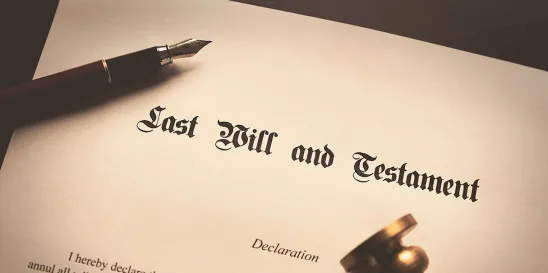In Castello v. Ex’r of the Est. of Castello, the decedent died leaving a will that left his property to his wife “for life” and then to his three children by a prior marriage. No 03-22-00012-CV 2023 Tex. App. LEXIS 4454 (Tex. App.—Austin June 23, 2023, no pet. history). The wife filed an opposition, alleging decedent’s lack of testamentary capacity and attaching an earlier will that she sought to probate. The proposed executor filed a motion for summary judgment, arguing that there is no genuine issue of material fact regarding decedent’s testamentary capacity and seeking to dismiss the opposition. He attached to his motion the will, the affidavit of the attorney who drafted the will, and a warranty deed. The wife filed a response and attached her affidavit and excerpts from the attorney’s deposition. The trial court granted the motion and admitted the new will to probate, and the wife appealed.
The court of appeals reversed, holding that the wife’s affidavit provided sufficient facts that created a fact question on mental capacity:
Cindy’s evidence shows that Decedent’s physical health and mental functioning had been declining since his stroke in 2006, and that by 2008 he could not manage or understand the day-to-day operations or functions of his business and needed a twenty-four-hour caregiver. It also shows that during the period the will was executed, Decedent was on medication for Alzheimer’s disease; did not recognize his family members; could not remember what he did during the day or what he ate (or even whether he ate) while Cindy was away at work; did not possess sufficient memory to make decisions for himself, including ordering at a restaurant; and relied on Cindy to speak to doctors or others on his behalf. Cindy’s evidence also showed that she, having known Decedent as his wife for over twenty years when he died and having been around him every day, believed that at the time of the 2012 Will’s execution Decedent did not have the mental capacity to execute a will, understand the effect of making a will or know the general nature and extent of his property or his next of kin and the natural objects of his bounty, or make “any other decisions that would require him to think and act on his own accord with an understanding of what he was doing.” Additionally, Steinhauser testified that he had not discussed the specific contents of Decedent’s estate with him, despite the statement in his affidavit to the contrary, creating an issue of fact on whether Steinhauser could have opined on the aspect of Decedent’s testamentary capacity requiring him to know the “general nature and extent of his property.” Cindy’s evidence, in the form of her affidavit, is of the type that both shows a lack of testamentary capacity and is probative of such lack at the time the 2012 Will was executed.
Although Mark contends that Cindy’s affidavit is “self-serving and conclusory,” many of the statements therein are of the same character as those in Steinhauser’s affidavit. That is, each Steinhauser and Cindy aver their respective—and opposing—beliefs about whether Decedent “understood the business in which he was engaged, the effect of making a will, the general nature and extent of his property, and his next of kin and the objects of his bounty.” But, unlike Cindy’s affidavit, Steinhauser’s does not describe any facts from which his conclusions are drawn, except to state that after Decedent “confirmed that the Will expressed his desires,” he and his staff witnessed the will. To determine on summary judgment that Steinhauser’s beliefs conclusively establish Decedent’s testamentary capacity when countered by Cindy’s similarly stated beliefs—and more—would require determinations as to the weight and credibility of the evidence, which is the province of the factfinder. Additionally, although the 2012 warranty deed likely weighs against Cindy’s position, it should be considered by the factfinder along with the entirety of the evidence and does not conclusively establish that Decedent had testamentary capacity on the date of the 2012 Will’s execution, in light of Cindy’s conflicting evidence.
We hold that Cindy presented sufficient evidence to show the existence of a material fact issue with respect to Decedent’s testamentary capacity at the time of the 2012 Will’s execution. Accordingly, we conclude that the trial court erred in granting Mark’s motion for summary judgment and admitting the 2012 Will to probate.
Id.




 />i
/>i

